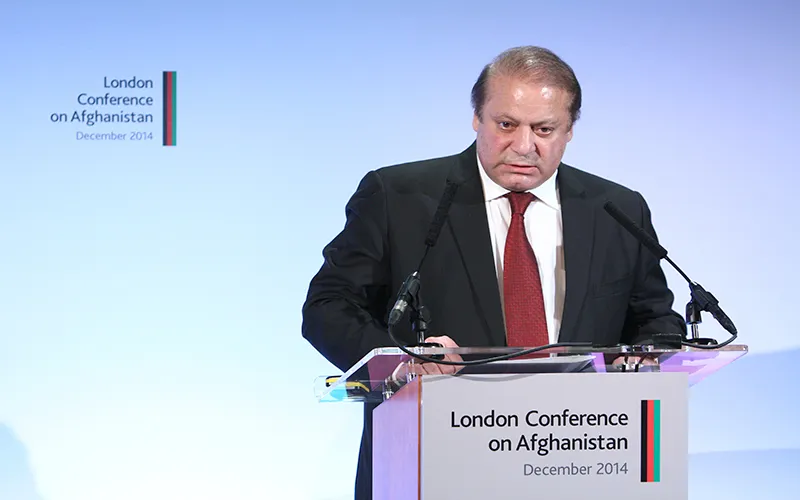Last week, Pakistan's parliament voted to remain neutral in the civil war in Yemen, angering Saudi Arabia and the Gulf Emirates. The decision came after five days of debates and is the best illustration you could have of the moderating influences of democracy over authoritarianism. You can be sure if the whole process had been confined to backroom deals between the Sheikhs and the Pakistan military or the Sharif brothers, Pakistan would have found it difficult to resist the pressure. But because the whole thing was out in the open, it became difficult to justify what almost all Pakistanis thought would be a bad decision.
The resolution is not binding, because Prime Minister Nawaz Sharif is supposed to have all authority over the armed forces. We know this is not quite true, but it does imply that it was not just the view of the Parliament that was key to the Pakistani decision. Of course, if somehow the Pakistan Army thought that by going to Yemen they could harm India, the decision to go would have been a foregone conclusion. When it comes to national interest, the one factor which always seems to trump Pakistani common sense is the perceived threat from India. Fortunately, in this instance, India was not an issue.
Pakistani defence minister Khwaja Muhammad Asif had revealed last week that the Saudis had wanted the works - Pakistani troops, warships and fighter jets to battle the allegedly Iran-backed Houthi rebels. A Pakistani refusal is bound to deeply anger the Saudis because the latter see themselves as mentors of the former and have helped Islamabad with dollops of money at various point in time. Further, the Saudis provided the Sharifs succour when they were being persecuted by Musharraf after he overthrew the government in 1999.
The 12-point resolution approved by Parliament said that Islamabad must maintain "neutrality" in the conflict, it also calls on the "warring factions" to resolve their differences through dialogue, it wanted the Pakistan government to take up the issue through the UN Security Council. And, most curiously, it thanked the People's Republic of China for its assistance in the evacuation.
Pakistan has good reasons to have rejected what could have become a quagmire for its forces. Yemen is a vast under-developed region and prosecuting war there is no picnic, as the Egyptians learnt in the 1960s. More important is the fact that the Pakistan Army is fully committed to fighting its own civil war against a hardened enemy in the tribal areas of the north-west. It is also important to note that the war has the potential of becoming part of a larger Shia-Sunni conflict that is dividing the Islamic world in the Middle-East, and Islamabad is aware of the fact that not only does it border Shia Iran, but that some 20 per cent of its own population professes the Shia branch of Islam. Significantly, last Thursday, Iran's Foreign Minister Javad Zarif was in Islamabad for meetings and he urged Prime Minister Sharif to avoid meddling in Yemen.
Iran is a powerful neighbour and has the capacity of making things difficult for Islamabad, considering that its other borders - with India and Afghanistan are not too peaceful. As it is, the province of Balochistan is in turmoil and Iran has the capacity of stirring up trouble there should Islamabad get out of line. Iran would not want anything to come in the way of a nuclear deal being negotiated with the US-led P 5+1, and neither - for their own reasons - would the Europeans and the Chinese.
Where does the release of Zakiur Rehman Lakhvi, the Lashkar-e-Taiba leader come in all this? We can't be sure, but perhaps there is a connection. It could be a bone being thrown to the Sunni Islamists to prevent them from exercising their street power at this crucial juncture. As it is, the Ahle-Hadis LeT's version of Islam is the closest to the version practiced in Saudi Arabia and this could well be some sort of a balancing act.
The reference to China in the parliament resolution is clearly aimed at telling the Saudis that Pakistan is not entirely without friends, especially since the United States has seen through its duplicitous ways and maintains an essentially transactional relationship. In October 2011, the then Prime Minister of Pakistan had described the relationship with Beijing as being "higher than mountains, deeper than oceans, stronger than steel and sweeter than honey." But it has been abundantly evident that this love is one-sided.
The Chinese have their own interests in a stable Saudi peninsula. Half of all their crude imports come from the region and their ties with the countries of the region have been expanding in recent years. Further, its One Belt One Road initiative passes through the Red Sea. The Chinese are unlikely to underwrite any Pakistani adventurism in Afghanistan or in relation to India. Neither are they the kind of people who write out cheques at the drop of a hat. But at this juncture, Islamabad knows that beggars cannot be choosers.
(The writer is a Distinguished Fellow at Observer Research Foundation, Delhi)
Courtesy: www.mid-day.com
The views expressed above belong to the author(s). ORF research and analyses now available on Telegram! Click here to access our curated content — blogs, longforms and interviews.

